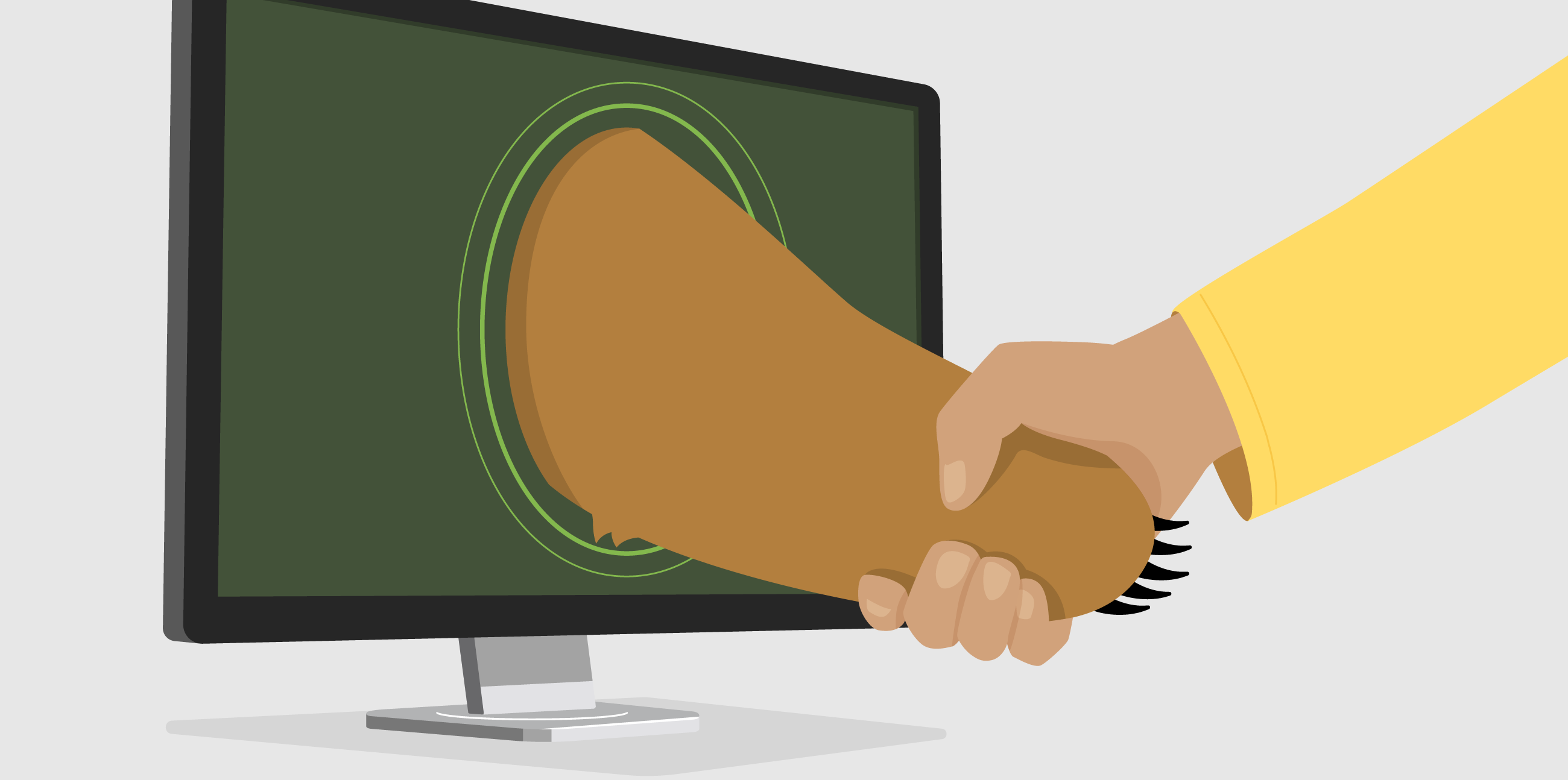TunnelBear Tales: Sarah Aoun
TunnelBear allows users to browse the internet safely without fear of network restrictions or surveillance. We’re exploring what the often-abstract concept of censorship and digital rights look and feel like for those on the ground experiencing it. Sarah is a technologist, researcher, and human rights activist. She is Chief Technologist for Open Tech Fund, a non-profit which distributes grants for small-medium sized internet freedom projects (you can thank them for Signal and Tor). We sat down to talk about her relationship with digital security tools and human rights.
TunnelBear: I wanted to touch on your experience in activism as you’ve moved, because you’ve been an activist in Lebanon and in the US yet work globally. I thought we’d start at the beginning; how did all this start for you?
Sarah: I grew up in Lebanon, I was there until i was 17, then I left and came to the US for University.
I was always interested in human rights. I was around 14 when I attended my first protest, and things kind of kept going after that. There’s no real history of activism in my family, but I always knew I wanted to be involved in human rights and activism.
When I graduated college, I was applying to jobs either at human rights NGOs, such as Human Rights Watch and Amnesty International, or Google. I was fascinated with technology but wanted it to be connected to human rights. However, this was about a decade ago, when the intersection of technology and human rights was not as clear as it is today, which meant there weren’t any roles or opportunities for someone like me.
I ended up going with the human rights track. I worked at Human Rights Watch, taught myself how to code, and always played a lot with computers when I had free time.
At some point I left Human Rights Watch to build out the nonprofit track at a data visualization company. While I was doing this work, I was working with many people who wanted to visualize very sensitive data. For example, I worked with a group in the Middle East who stored their research about the local LGBT population on pieces of paper, which immediately got me worried about how they were planning on safely storing the data, and protecting people’s identities.
This is where I started to talk to folks more about security and privacy, based on lived experiences and certain practices that felt intuitive at the time.
I then ended up at the first IFF, when it was only a small group of people. When I was at the IFF, I realized that this intersection does exist and that there are people who work on human rights and technology. It’s amazing to think of, given that IFF is now a community of thousands of people that talk about everything from surveillance to circumvention to privacy and encryption.
TunnelBear: So your path through has been a natural progression?
Sarah: My path through the internet freedom community started with human rights and activism, and trying to tinker with software and hardware and hack along the way.
It’s interesting because nowadays, a lot of international nonprofits advertise information security positions and have teams working on technology and human rights. But back then, it was not the case. There was no path or example for me to follow. All I knew was that human rights was my passion, technology and its impacts fascinated me, and I knew there had to be an intersection there somewhere. I stumbled along until it made sense.
TunnelBear: I remember you once remarked that you don’t separate your profession from activism or the idea of you as an activist, because you always have been. Would you like to add something to that? How has this evolved from your move from Lebanon to the States?
Sarah: This is 100% true. I get to do something I care about, and it’s hard to see it as a job. My work is very much intertwined with what I believe is our duty as human beings on this planet...Caring for one another and looking after our futures. To be an activist or fight for human rights is not a choice, it’s a necessity that I deeply believe in.
There’s no separation, my personal is political, and my political is personal.
With regards to how this has evolved over time. When I was in Lebanon, my thinking and care was focused on the context I was in. Being [in the States], there’s a lot of different activism circles that I have a foot in and feel privileged to. I’ve gotten to learn so much about how different groups organize, which informs me about useful tactics to deploy all around the world.
TunnelBear: would you say that your relationship with digital security tools is mostly related to organizing, then?
Sarah: I don’t think you have to be an activist or organizer to need digital security tools. We should all be able to go online and have full agency and autonomy about how our data is being used. Also, having access to knowledge means being able to have access to the internet in a way that’s not monitored or surveilled. The right to privacy is as basic as the right to exist, especially because technology and the internet are so intertwined with the way we live today.
That said, obviously we need digital security tools to organize. But anyone from a prominent community organizer to a rural farmer in Lebanon should have access to the same internet.
TunnelBear: That sentiment is something we’ve tried to echo as well. At the end of the day these tools have a human element and the cost of that is very different depending on where you live. How has that affected your work?
Sarah: It certainly has. When I give digital security workshops, I tend to speak to many different types of audiences. Starting with ones whose relationship to VPN is to watch their favourite show, to folks who need VPNs to have access to news in their country.
This is how I approach a lot of my digital literacy work. It’s not always just about social justice and human rights (and it is about that), but it’s also about everyone’s right to information, which they should be able to exercise freely.
TunnelBear: How do you feel about the state of digital access in general?
Sarah: I think the pandemic shocked a lot of people, because it highlighted inequalities across the board.
Let’s use schools as an example - Within the same class you could have students that have the privilege of being able to attend class online, and ones from lower income families with poor access to the internet. Imagine also being an international student from Lebanon, for example. There’s a very little chance that they’d be able to follow a lecture at the broadband connection needed. So many people are left at a complete disadvantage with regards to education. This debate was largely left out of public discourse until the pandemic forced people to look at it differently.
TunnelBear: How do you feel about the state of digital literacy in general?
Sarah: I think it’s still very far from where it needs to be, and I think it’s everyone’s responsibility to bring each other up to a higher standard.
Whether it’s taking the time to sit down with your grandparents to teach them about phishing attempts, or [on the policy level], working to bring internet connection to remote areas and spread education materials more broadly, or for digital literacy to be an integral part of education, or for tech companies to design their apps with the most vulnerable user in mind, every bit matters. There is work to be done at every level, especially as technology develops faster and faster.
TunnelBear: Do you think the internet freedom community is doing a good job of this?
Sarah: The community itself is very diverse. It includes technologists who are focused mostly on technological advancement of tools, and folks who advocate for demystifying digital security through promoting digital literacy and education. I think the latter is very important.
TunnelBear: Do you use digital security tools or VPN to keep in touch with folks at home?
Sarah: Yes I do, and I think this should be part of everyone’s everyday life, in the same way that brushing your teeth should be part of your daily routine.
I know this can be frustrating at first, because it could add a bit more time to your day, but in the end, it saves you a lot of time if you keep up with your digital hygiene the same way you keep up with any type of hygiene in your life.
This applies to the way you use the internet, apps devices, and messaging platforms (here is TunnelBear’s guide on staying safe online).
TunnelBear: You noted this year highlighted the gaps we must fill; do you feel optimistic with the way things are going?
Sarah: I’m sitting somewhere in the middle. On one hand, I think companies and governments have taken advantage of people’s anxieties and used that to normalize surveillance, to present it in a way that surveillance equals public safety. We saw this happen after 9/11, and now we’re seeing this happen because of the pandemic with contact tracing apps. We shouldn’t use people’s anxieties at a difficult time to normalize invasive technologies.
On the other hand, I also see people are now much more aware of digital security, its importance, and the inequities we need to address. After the protests in the States and around the world last summer, everyone seemed to be getting on Signal for instance. People have started adopting privacy and security tools more broadly, which is amazing, because it seems like we’ve finally normalized the use of these very important tools that were once considered niche. I feel optimistic about this shift in consciousness, and how it highlighted the importance of encryption and privacy to the everyday person.
Sincerely rawrs,

TunnelBear is a very simple virtual private network (VPN) that allows users to browse the web privately and securely. It secures browsing from hackers, ISPs, and anyone that is monitoring the network. TunnelBear believes you should have access to an open and uncensored internet, wherever you are.

